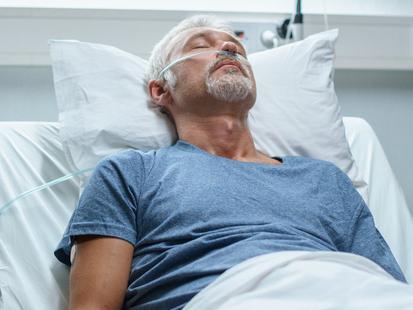
Fact sheet for healthcare providers:
Use of Dexcom Continuous Glucose Monitoring Systems in the Hospital
Dexcom Continuous Glucose Monitoring (CGM) Systems are indicated for home use and have not been FDA-cleared or approved for use in hospital settings. However, the US Food and Drug Administration (FDA) originally notified Dexcom on April 1, 2020 that it will not object to Dexcom’s provision of CGM systems for the treatment of patients in hospital settings and other healthcare facilities during the public health emergency. Dexcom received communication from the FDA stating FDA does not intend to object to Dexcom’s continued distribution of CGM systems to hospitals after the end of the public health emergency transition period (November 7, 2023), until FDA makes a final decision on Dexcom’s marketing submission for the Hospital CGM System. This does not expand Dexcom’s current authorized indications for use for its home use product.
This information is meant to inform healthcare professionals of the specific considerations for use of Dexcom G7 CGM Systems in hospitals and other healthcare facilities. This information should be reviewed carefully by healthcare professionals before using Dexcom CGM systems in hospital settings.
Use of Dexcom CGM Systems in the hospital setting
- The use of Dexcom’s G7 CGM systems can raise unique and untested challenges in a hospital environment.
- Hospitals should consider whether they have the resources and expertise necessary to adequately implement real-time CGM use in their facility and provide appropriate training to healthcare professionals and users.
- Healthcare professionals should carefully review the User Guide and Training Checklist for Dexcom’s G7 CGM system prior to use. Additional information and training materials can also be found at: dexcom.com/guides. Additional materials specific to hospital use are also available from the Dexcom Medical Science team.
- Hospitals should continue to use their existing protocols to manage and treat patient glucose levels. Real-time CGM can be used to provide remote monitoring and glucose trends to aid in glucose management and medical decision making.
- Real-time continuous glucose readings can have interpersonal variability. Performance of real-time continuous glucose monitoring has not been approved for use on patients in acute or non-acute hospital settings.
Indications for use of Dexcom CGM Systems
The Dexcom G7 CGM System is a real-time, continuous glucose monitoring device indicated for the management of diabetes in persons age 2 years and older for in-home use. For complete indications for use and intended use statements, please see Dexcom G7 Instructions for Use.1
Important Information for Use of Dexcom CGM System in the Hospital
- CGM glucose readings are less accurate than blood glucose readings obtained using traditional testing methods (e.g., lab glucose, blood glucose meters). Users should consider all CGM glucose information (e.g., trend) along with individual glucose values and interpret CGM information in the context of the full clinical picture. Hospitals should consider whether they have the resources and expertise necessary to adequately implement CGM use in their facility and provide appropriate training to healthcare providers
- CGMs are subject to interferences that may generate falsely high and falsely low glucose readings. Levels of interference depend on drug concentration; substances that may not significantly interfere in non-hospitalized patients may interfere when used in the hospital setting because of higher dose levels. Most drugs used in hospital or critical care settings have not been evaluated and their interference with CGMs is unknown. Known interferences vary by CGM brand, and can include:
- Acetaminophen2
- Ascorbic acid
- Hydroxyurea
- Other reducing drugs/ compounds
- Poor peripheral blood perfusion may cause inaccurate sensor readings. CGM results should be interpreted considering accompanying patient conditions and medications. Other clinical conditions may also cause inaccurate readings.
Additional Considerations for Use of Dexcom CGM System in the Hospital
- The Dexcom G7 is contraindicated for MRI/CT/diathermy. The Dexcom G7 system components should be removed during magnetic resonance imaging (MRI) or high-frequency electrical heat (diathermy) treatment. However, it’s safe to keep sensor on patient for CT scan if out of the scanned area and sensor is covered with a lead apron during the scan. See Dexcom G7 Instructions for Use for warnings and precautions.1
- The use of Dexcom CGM Systems for hospital use will apply as Dexcom continues work on an FDA submission for a hospital-specific product and until FDA makes a final decision on Dexcom’s marketing submission.
How do I report adverse events?
Report adverse events, including problems with performance or results, to Dexcom by calling: 1-844-607-8398 and selecting option for healthcare professional support. Adverse events, including problems with test performance or results, can be reported to MedWatch by submitting the online FDA Form 3500 at accessdata.fda.gov/scripts/medwatch/index.cfm?action=reporting.home or by calling 1-800-FDA-1088.
2 Taking higher than the maximum dose of acetaminophen (e.g. > 1 gram every 6 hours in adults) may falsely
elevate G7 readings.
